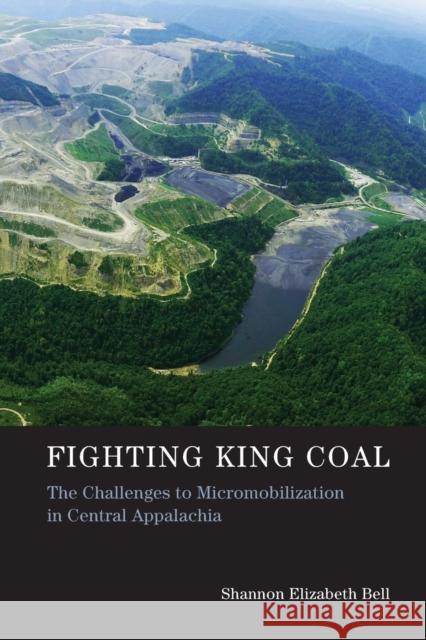Fighting King Coal: The Challenges to Micromobilization in Central Appalachia » książka
Fighting King Coal: The Challenges to Micromobilization in Central Appalachia
ISBN-13: 9780262528801 / Angielski / Miękka / 2016 / 344 str.
In the coal-mining region of Central Appalachia, mountaintop-removal mining and coal-industry-related flooding, water contamination, and illness have led to the emergence of a grassroots, women-driven environmental justice movement. But the number of local activists is small relative to the affected population, and recruiting movement participants from within the region is an ongoing challenge. In Fighting King Coal, Shannon Elizabeth Bell examines an understudied puzzle within social movement theory: why so few of the many people who suffer from industry-produced environmental hazards and pollution rise up to participate in social movements aimed at bringing about social justice and industry accountability. Using the coal-mining region of Central Appalachia as a case study, Bell investigates the challenges of micromobilization through in-depth interviews, participant observation, content analysis, geospatial viewshed analysis, and an eight-month "Photovoice" project -- an innovative means of studying, in real time, the social dynamics affecting activist involvement in the region. Although the Photovoice participants took striking photographs and wrote movingly about the environmental destruction caused by coal production, only a few became activists. Bell reveals the importance of local identities to the success or failure of local recruitment efforts in social movement struggles, ultimately arguing that, if the local identities of environmental justice movements are lost, the movements may also lose their power.











